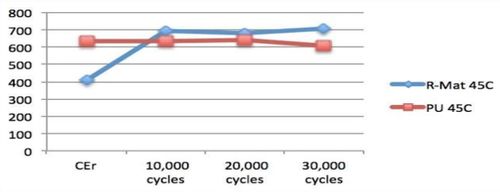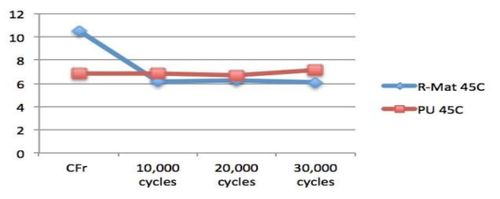Difference between revisions of "RMAT"
From Fellrnr.com, Running tips
User:Fellrnr (User talk:Fellrnr | contribs) (Created page with "When Hoka were taken over by Deckers in 2013, they started to use a new type of foam in some of their shoes called RMAT (sometime R-MAT). I've found that...") |
(No difference)
|
Revision as of 09:03, 20 December 2014
When Hoka were taken over by Deckers in 2013, they started to use a new type of foam in some of their shoes called RMAT (sometime R-MAT). I've found that the claim that RMAT shoes last longer is well justified. However, I've also found that the RMAT shoes are far too heavy and too firm. I avoid any Hoka shoes that use RMAT.
- This foam, produced by Xinyilai Rubber Goods, is actually a type of rubber that is intended to combine the features of rubber and foam.
- RMAT has better grip than EVA foam, allowing it to be used without an outsole.
- RMAT is more resistant to the gradual reduction in height that happens as foam wears out, making it last longer.
- Xinyilai claims that their rubber has better cushioning characteristics than traditional foams. However if you look at the graphs below, you can see that RMAT does much worse until 10,000 cycles. It's unclear how the cycles are performed, but in the few hundred miles I've run in a pair of RMAT shoes, I saw no improvement.
- RMAT is produced as an insole, midsole and outsole.

